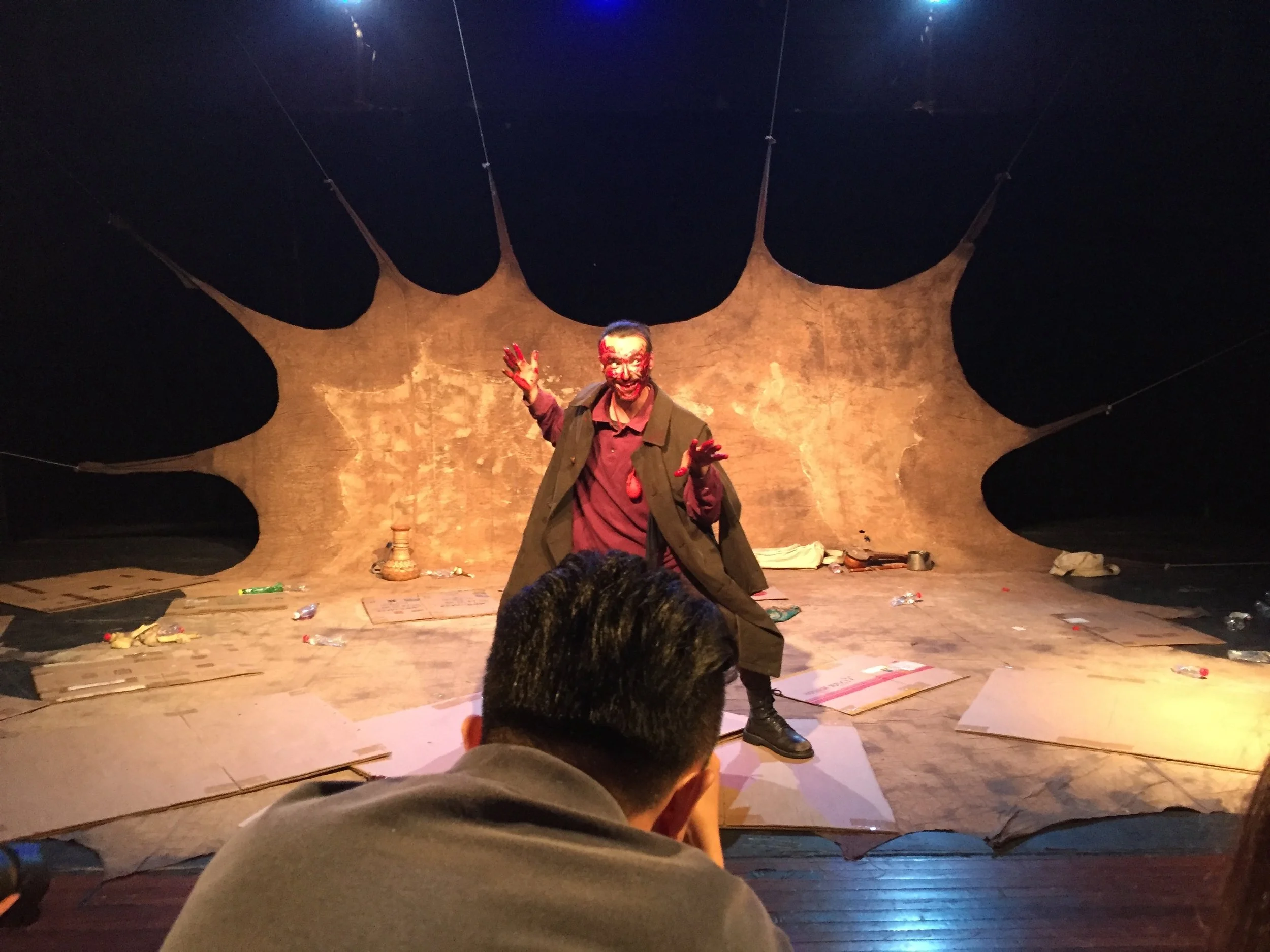This highly theatrical production features a large cast of performers from the two companies of the Saitama Theatre. It therefore mixes young interpreters (Saitama Next) with elderly ones (Saitama Gold), who symbolically move on wheelchairs so as to highlight a feeling of the passing of time and of a physical and moral decaying.
Under the direction and supervision of its Artistic Director (the late Yukio Ninagawa), the “Sai-no-kuni Shakespeare Series” has put on such popular works as Hamlet and Macbeth as well as plays rarely staged in Japan, such as Antony and Cleopatra and the epic trilogy Henry VI. Also popular is the “All Male Series,” which stages plays as they were originally performed, with an all-male cast. Starting with our co-production of King Lear with the Royal Shakespeare Company, the series has been successfully staged overseas such as in Stratford-upon-Avon, London, New York, and Seoul. Now it represents one of the most pioneering Shakespeare productions in Asia, and keeps receiving global attention.
Richard II is the last Shakespeare's play Ninagawa directed, since he passed away aged 80 at the beginning of May 2016.
Read More







